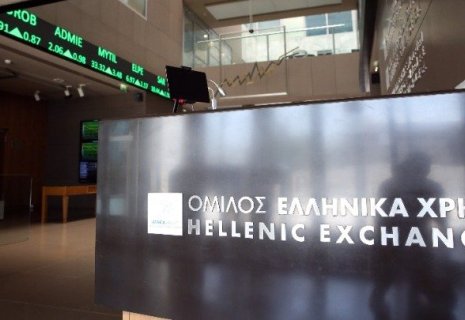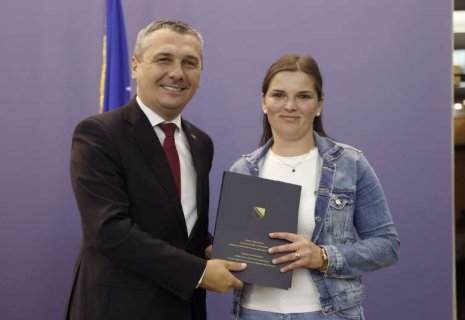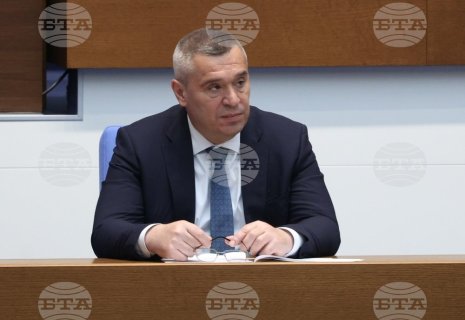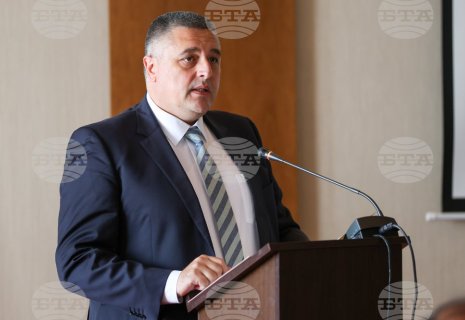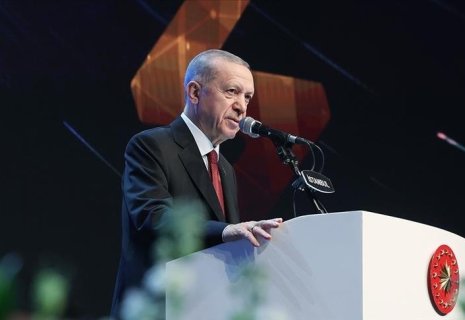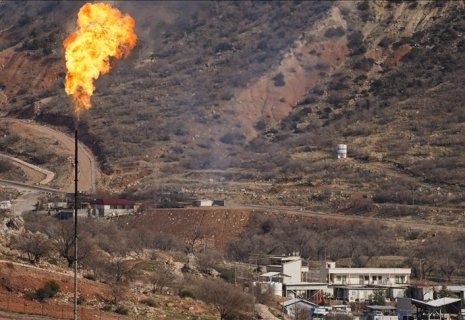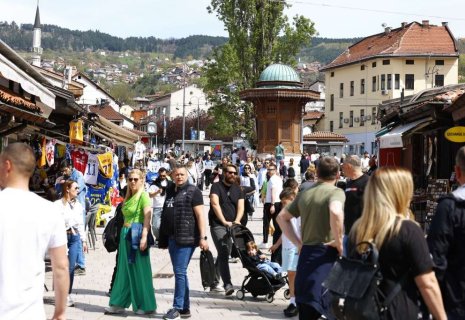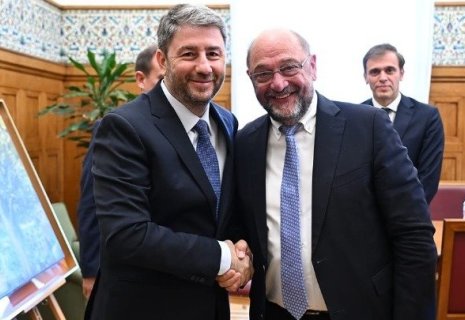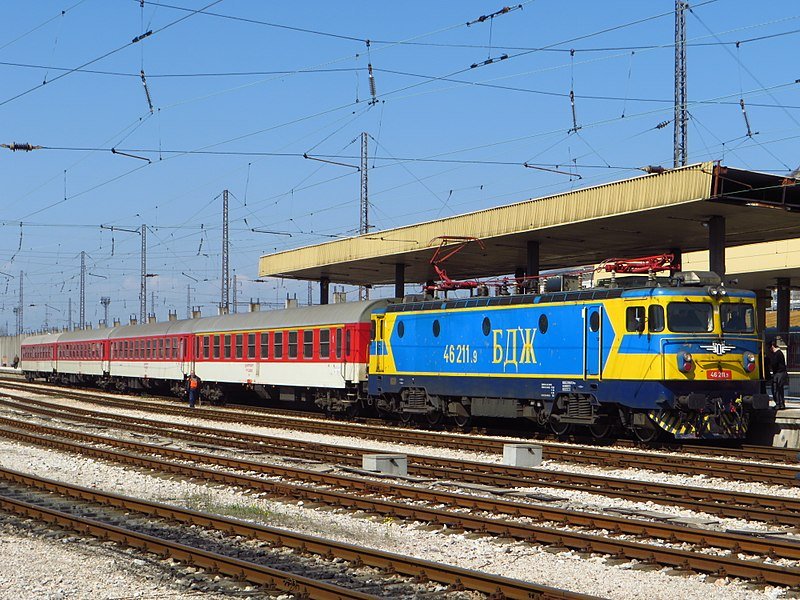
Bulgaria pushes railway link to North Macedonia on Corridor VIII - EXCLUSIVE
The Ministry of Transport and Communications of Bulgaria, in an exclusive interview with CE Report, provided detailed updates on the progress, challenges, and cooperation efforts related to the Corridor VIII railway project, aimed at enhancing regional connectivity and economic integration in the Western Balkans.
Could you clarify Bulgaria’s current position regarding the railway extension from Gyueshevo to the North Macedonian border?
The construction of the missing connection between Gyueshevo and the entrance to the cross-border tunnel facility towards the Republic of North Macedonia is of highest priority for Bulgaria. Funding from the Transport Connectivity Programme has therefore been earmarked for this project.
Bulgaria actively seeks the cooperation of the Republic of North Macedonia on the construction of the cross-border tunnel. On 15 January 2025, Bulgaria has submitted to the government in Skopje a proposal for an Intergovernmental agreement on this issue. The draft agreement is foreseen as a legally binding and parliamentary ratified international treaty, which will be the first of its kind on Corridor VIII. Its primary aim is to set out the specific commitments of both parties on the technical, financial, construction and operational aspects of the cross-border facility. As such, the agreement is the key to solve all the existing technical issues. However, we regret that despite numerous reminders so far, almost 5 months after receiving the agreement, Bulgaria is still awaiting the feedback and comments of the Republic of North Macedonia on the text in order to move ahead with the discussions in a meaningful and productive manner. Should the Republic of North Macedonia have any objections to the proposed text, we are ready for constructive discussions to overcome them. In case no further work on the text is needed, Bulgaria is ready to sign the agreement immediately and start prompt action on the construction of the tunnel facility after completing all necessary procedures.
As an indispensable part of the necessary actions for the completion of the corridor Bulgaria also urges the Republic of North Macedonia to proceed with the construction of the Kriva Palanka–Deve Bair railway project (Lot 3) according to the parameters approved under the Western Balkans Investment Framework (WBIF).
Are there any active technical or construction preparations for this section? If not, when are they expected to begin?
Feasibility studies and preliminary designs have been prepared and approved. Field archaeological studies have been completed and an Environmental Impact Assessment (EIA) procedure has been carried out. The EIA decision has now come into force. Work on the technical design is underway, and detailed development plans and construction documentation are to be prepared. The estimated cost of constructing the missing railway connection to the entrance of the cross-border tunnel facility with the Republic of North Macedonia, including Gyueshevo railway station, of BGN 97 million, is available. Construction works on the section of the newly designed Gyueshevo station to the border with the Republic of North Macedonia (up to the entrance of the cross-border tunnel facility) and to the existing railway line will be completed by the end of 2029. This deadline aligns with the eligibility period for expenditure under the Transport Connectivity Programme 2021—2027, as well as the Memorandum of Understanding between the Republic of Bulgaria, the Republic of Albania, and the Republic of North Macedonia regarding cooperation in constructing sustainable infrastructure along Corridor VIII, which forms the basis for negotiations.
Has there been recent communication or planning coordination with North Macedonian counterparts regarding the tunnel and other joint infrastructure?
A number of technical meetings have been conducted so far at the initiative of the European Commission and Bulgaria. For instance, on 31 October 2024, a joint technical meeting took place in Sofia between the Directors-General of SE NRIC and its North Macedonian counterpart, where the technical parameters for implementing the Corridor VIII railway project were discussed. During the meeting, the parties exchanged information on the current situation, set out an initial timeframe, and shared their experiences of technical issues related to the construction of Corridor VIII, particularly the procedures for implementing and operating the cross-border tunnel facility in the future. Those in attendance included the Secretary of State of the Republic of North Macedonia, Mr Stefan Volkanovski; the Directors-General of the two countries' Railway Infrastructure Managers; representatives of the Ministries of Transport and Communications of both countries; and representatives of the European Commission, the European Bank for Reconstruction and Development and the European Investment Bank.
The meeting confirmed the commitment to maintaining the design solution for the tunnel facility in accordance with the technical design developed by the Republic of North Macedonia and agreed by Bulgaria. After analysing the technical possibilities and assessing the risks, the meeting participants agreed that it would be more appropriate for a single contractor to construct the cross-border tunnel facility. Representatives of the EIB and EBRD expressed their support for this technical solution, offering assistance in preparing and conducting the tender procedure. At subsequent discussions, it will be decided which party will conduct the procurement procedure for the tunnel as part of the intergovernmental agreement and in accordance with the ongoing consultations with the participating financial institutions.
On 14 April 2025, Minister Karadjov together with his colleagues, the ministers of regional development and defence, jointly hosted a high-level working breakfast meeting in the presence of ambassadors, including the Ambassador of the Republic of North Macedonia, and representatives of the European Commission and the financial institutions to present the country's progress on the construction of Corridor VIII. During the meeting, Minister Karadjov once again expressed his availability to proceed immediately with the signing of the agreement for the construction of the cross-border tunnel, as long as there is willingness on the side of the Republic of North Macedonia to do so.
What investments or funding have been secured on the Bulgarian side for the development of Corridor VIII?
For years, the Ministry of Transport and Communications has been working on the overall development process of Corridor VIII (Bari/Brindisi –Durrës –Tirana –Skopje –Sofia –Burgas/Varna), with the main investments in railway infrastructure in Bulgaria aimed precisely at completing this corridor and connecting the railway network to that of the Republic of North Macedonia. More than 50% of Corridor VIII's total length is in Bulgaria, meaning it carries the main investment burden for the Corridor's implementation. SE NRIC is implementing an ambitious investment programme to rehabilitate and modernise the railway tracks located along the Corridor:
- Sofia – Plovdiv – Karnobat – Burgas,
- Karnobat – Syndel – Varna and
- Sofia – Pernik – Radomir – Gyueshevo border with the Republic of North Macedonia, with a total investment value of more than BGN 4 billion.
How does the Ministry prioritize Corridor VIII in comparison to other international or trans-European transport projects?
For years, the Ministry of Transport and Communications has been working to develop Corridor VIII, with the main investments in railway infrastructure in Bulgaria aimed at implementing this corridor and connecting the railway network to that of the Republic of North Macedonia. Eighty percent of all NRIC projects currently being implemented are part of Corridor VIII.
Bulgaria is taking the initiative to encourage Albania's efforts on projects within its borders and has arranged a trilateral meeting of the transport ministers of the three countries to discuss these issues. As early as 2014, at a meeting of the transport ministers of the three countries, it was agreed to adopt a joint declaration on coordinated action for the construction of Corridor VIII. In 2021, at a meeting of the three countries' railway infrastructure managers in Sofia, a commitment was made to take all necessary steps to complete the corridor, connecting the three countries and establishing a link between the Adriatic and Black Seas. To this end, a joint working group comprising representatives from the three companies was formed, and it was agreed that high-level meetings would be held at least once a year on a rotational basis among the contracting parties.
At our initiative, a Memorandum of Understanding was signed in 2021 between the Republic of Bulgaria, the Republic of Albania and the Republic of North Macedonia to cooperate in constructing sustainable infrastructure along Corridor VIII, forming the basis for negotiations. The Memorandum focuses on investment projects that will benefit the region the most, as well as on coordinating and implementing efforts and measures to build missing connections between the countries and within each country's territory.
At Bulgaria's suggestion, on 25 November 2022, a Joint Declaration was adopted by Bulgaria, Italy, Albania and North Macedonia, confirming their shared commitment and the concrete measures for constructing the infrastructure along the Corridor within the deadlines set out in the guidelines for developing the Trans-European Transport Network.
Thanks to Bulgaria's efforts, the Sofia – Skopje – Durrës – Bari route (via sea) is now part of the new European Transport Corridor ‘Western Balkans – Eastern Mediterranean’. This corridor is included in the new Regulation (EU) 2024/1679 of the European Parliament and of the Council of 13 June 2024 on Union guidelines for the development of the Trans-European Transport Network.
The 26 September 2024 Declaration of the National Assembly of the Republic of Bulgaria confirms the political intention and aspiration to complete the construction of Pan-European Corridor VIII on the Bulgarian side. The declaration also appeals to the government of the Republic of North Macedonia to fulfil all commitments and arrangements undertaken in good faith in order to build the sections of the corridor on its territory in a timely manner.
Furthermore, preparations are underway to select contractors for construction work on the Sofia – Pernik and Pernik – Radomir railway sections, as well as for the missing railway connection to the entrance of the cross-border tunnel facility with the Republic of North Macedonia, including Gyueshevo railway station.
Photo: Wikipedia
This interview was prepared by Abdul Karimkhanov



